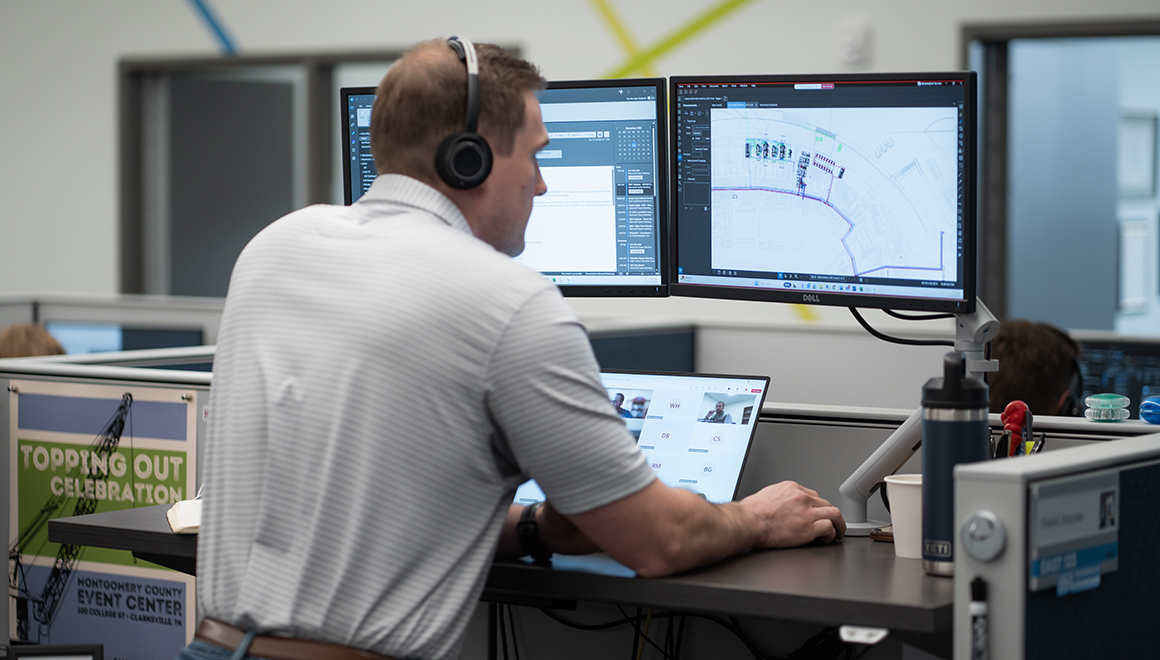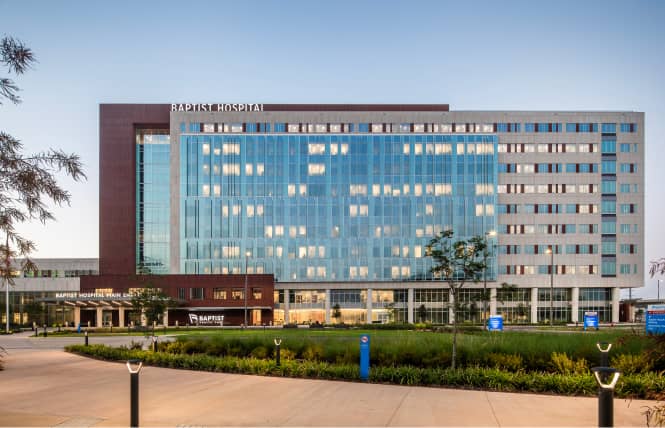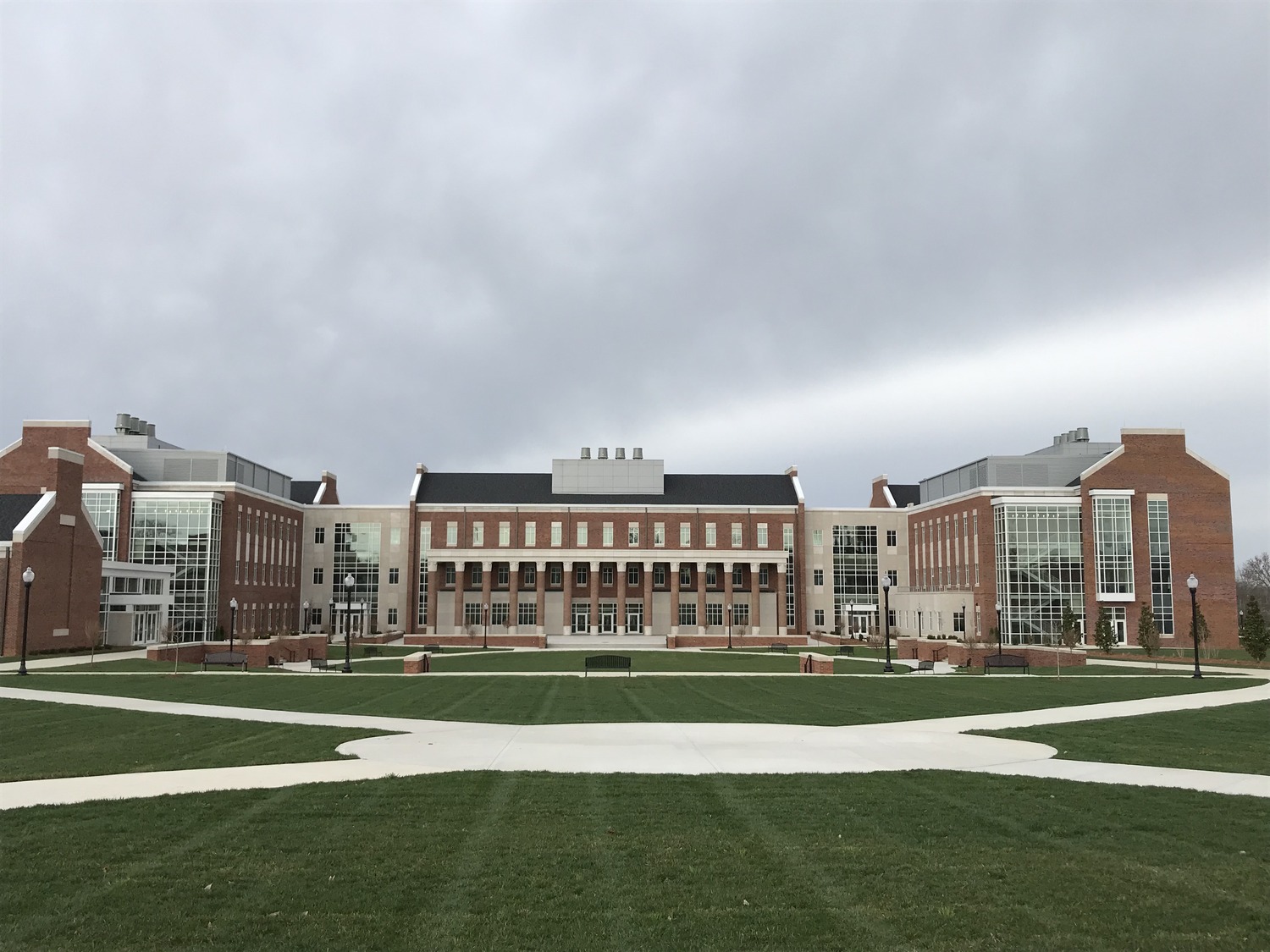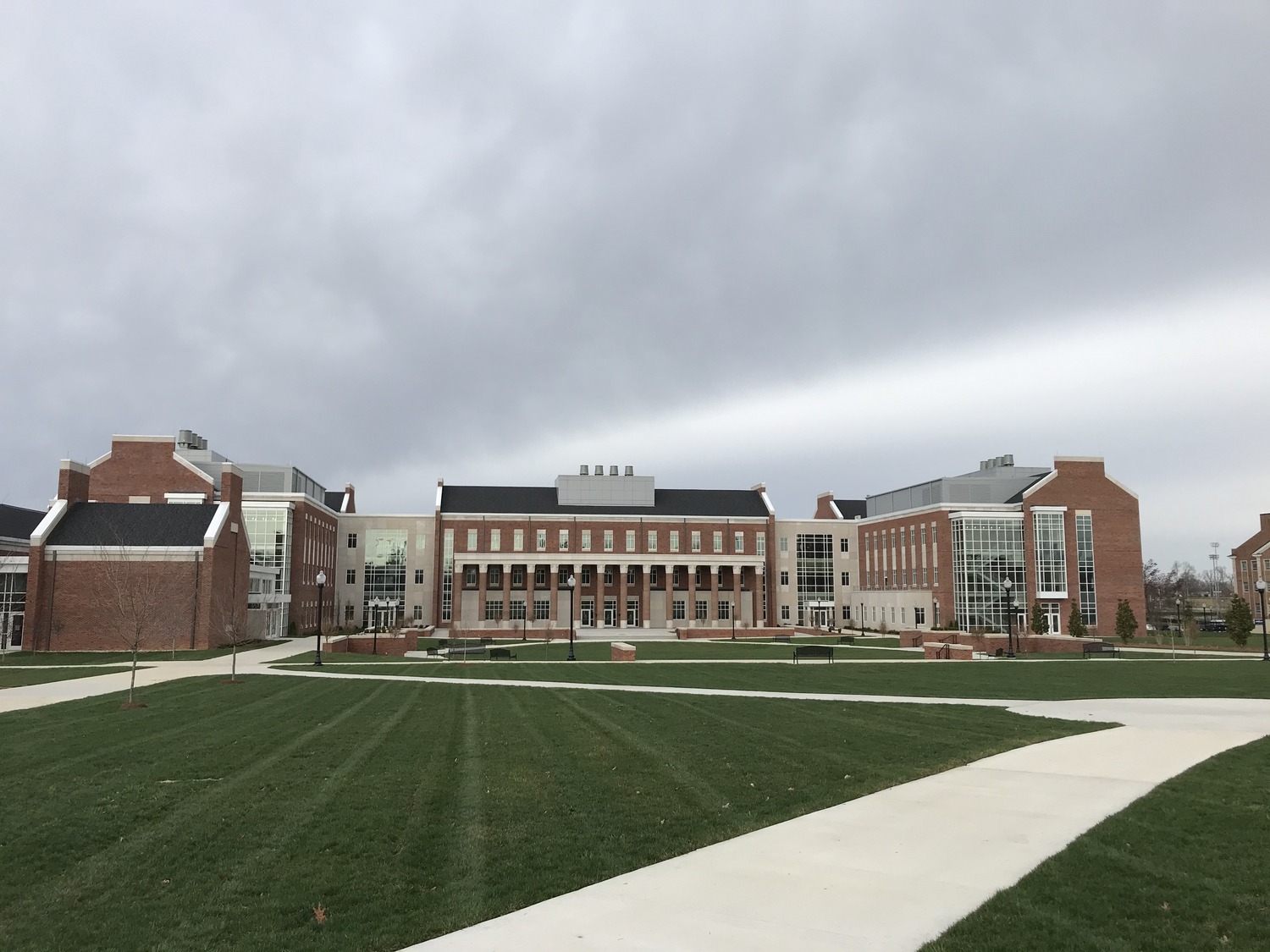Advanced lab and science building that allows all Tennessee Tech students to have their own lab station for academic and research purposes.
Tennessee Tech offers STEM-centered curriculum and challenging coursework to a student body of around 10,000. The school encourages collaborative and impactful research through specialized degree offerings and recently opened a dedicated lab and science building to promote this mission. As one of the largest construction projects on campus to date, the building enhanced the number of laboratory workstations to minimize students waiting for a turn to participate.
The new, three-story, 160,000 SF lab and science building hosts parts of Tennessee Tech’s chemistry and biology departments, as well laboratories for Earth sciences, physics, and environmental sciences. The academic curriculum is supported by an adjacent, single-story 17,577 SF lecture hall as well as a 2,500 SF chilled water plant expansion and major HVAC system. SSR was a key team member in supporting Tennessee Tech with this project. Our commissioning specialists helped problem solve and work through challenges, following through to successful completion.
Emphasis was placed on the commissioning of the fume hoods at each lab workstation. These hoods collect air that is contaminated with chemicals or biological agents and protect building inhabitants. These hoods must maintain targeted air velocities to achieve optimum operational efficiency while contributing to minimal energy and resource usage. Each hood was equipped with a proximity sensor to increase the speed of the exhaust fan and air valves when a person is near the hood and adjusts airflow as a function of sash opening height. Our team helped Tennessee Tech find that dynamic balance for each hood and the system as a whole to function per design intent.
The building holds other protective equipment to serve this function. The penthouse level of the building includes two modular air handling units to filter pre-conditioned air serving critical and non-critical spaces. To protect students and staff, exhaust or contaminated air in critical spaces is extracted through triplex fan stacks, regulated by air valves, and filtered through heat recovery coils to pre-treat the temperature of the supply air stream for energy savings.
The project provided the University with new, innovative spaces to promote growth and collaboration between faculty, staff and students. Our partnership with Tennessee Tech has led to additional opportunities for SSR to provide commissioning services for multiple projects on campus. We are committed to further supporting Tennessee Tech in developing buildings that are both aesthetically beautiful and functional.




